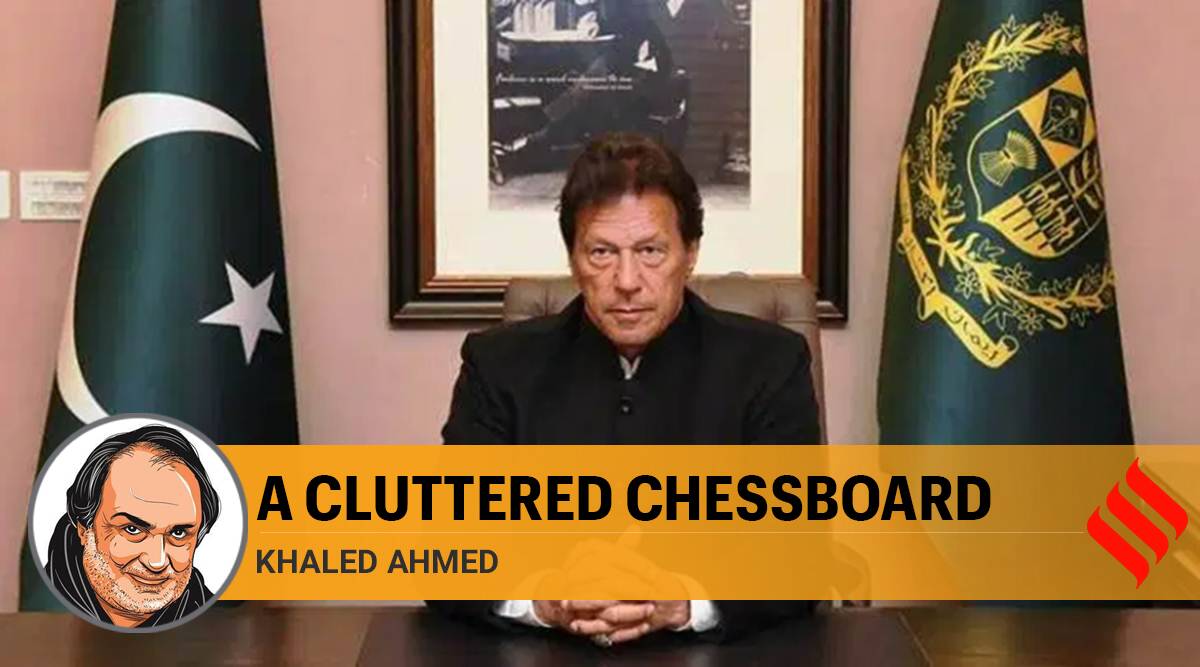
SOURCE: ENS
To condemn India for changing the status quo in Jammu and Kashmir, Pakistan had approached Saudi Arabia to convene a session of the Organisation of Islamic Cooperation (OIC), but the request was turned down. Thereafter Pakistan got together with Turkey and Malaysia to convene a summit of Islamic states — a kind of parallel OIC — which turned out to be a flop. Even Pakistan refrained from attending it as did most other members of the OIC.
Then the “released” news came that Pakistan was returning the aid it had got from Saudi Arabia — a billion out of the $6.2 billion pledged — after borrowing the billion from China. In fact, the Saudis had demanded their money back.
The Foreign Minister Shah Mehmood Qureshi tried gauchely to explain: “Saudi Arabia is facing economic pressure due to fall in oil prices and Pakistan is well aware of Saudi Arabia’s problems and Pakistan stands by its brotherly country in this hour of need.” But the truth is that Saudi Arabia was greatly miffed over what he had said with or without Prime Minister Imran Khan’s clearance: “If you cannot convene it, then I’ll be compelled to ask Prime Minister Imran Khan to call a meeting of the Islamic countries that are ready to stand with us on the issue of Kashmir and support the oppressed Kashmiris.”
In another move, Pakistan inched closer to Iran after China signed a $400-billion deal with it and India moved out of the Chabahar project that was seen as threatening Pakistan. But the Arab states across the Gulf will not take kindly to it. Iran is involved in the “Shia” wars that plague Iraq, Syria, Lebanon and Yemen. Turkey is the maverick of the region, challenging the Saudis by supporting the Brotherhood in Egypt, encouraging the maverick Arab state of Qatar in the Gulf to do likewise. Oddly, however, Turkey doesn’t please Iran either because in Syria it is killing the Syrians supported by Iran. It has also forced Iran to side with Saudi Arabia in Libya where Turkey is fighting a proxy war with the Saudis.
Imran Khan has struck up a special relationship with Turkey’s President Recep Erdogan, which also touches the heartstrings of most Pakistanis whose school textbooks glorify the Khilafat Movement in India, supporting the deposed Ottoman-Turkish caliph in Turkey. (Today, the Arabs collectively hate the Ottomans for having ruled over them in the past and express it by banning Turkish cinema in their countries, as in UAE and Egypt.) Prime Minister Khan ignores what Erdogan is doing to the freedom of expression in Turkey because the Turkish president doesn’t care if India is upset over his support to Pakistan over Kashmir. He also ignores the dangerously decreased capacity of Turkey to dole out financial support that Pakistan’s belly-up economy needs under Khan. Turkey under the dictatorial Erdogan was not expected to perform well economically and that is what has happened after the pandemic struck, increasing unemployment up to 52 per cent.
The other Muslim leader who has supported Pakistan over the latest Pak-India quarrel over Kashmir is Mahathir Mohamad, not long ago prime minister of Malaysia, who is critical of India’s “annexation” of Kashmir. Since he lost his prime ministerial post soon after dreaming about an Islamic Summit, one must look at whether Malaysia is ready for the sort of Islam that Pakistan has embraced. A little over 60 per cent of Malaysia’s 32 million citizens are Muslims, mainly ethnic Malays. Most of the rest are Buddhist, Christian, Hindu or not religious. Mohamad, president and prime minister from 1981 to 2003, was to claim that Malaysia was an “Islamic country”, ignoring the multi-national population — led by the Chinese and Indians — of his country that has made Malaysia economically viable.
China is not going to like PM Khan’s “revolution” in the region much. It is a big player in the Gulf and will become the power to reckon with after the Americans cut down troops in Iraq and Qatar. India is China’s next contender in the Gulf with good diplomatic relations with the Arabs and Israel, which the pragmatic Arabs don’t mind. Neither does Iran, despite its hardline Islam and its stubborn anti-Israel policy through Lebanon’s Hezbollah. China, India’s largest trading partner, simply can’t persuade Pakistan to abandon its either/or thinking vis-à-vis India and try for “normalisation” through trade routes.
Pakistan’s importance to China has no doubt increased after its “opening” in Iran, replacing India there. The trade China does with the Gulf, plus the Iranian oil for the next quarter-century, has to pass through Pakistan, cutting down the time taken by the Southeast Asian sea-route with its Strait of Malacca bottleneck. Pakistan and India have changed their maps, if that gives any satisfaction to the affected people, but they must strive for the normalisation of relations needed in the region.
This article first appeared in the print edition on August 29 under the title “A cluttered chessboard.” The writer is consulting editor, Newsweek Pakistan.






